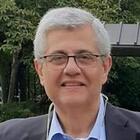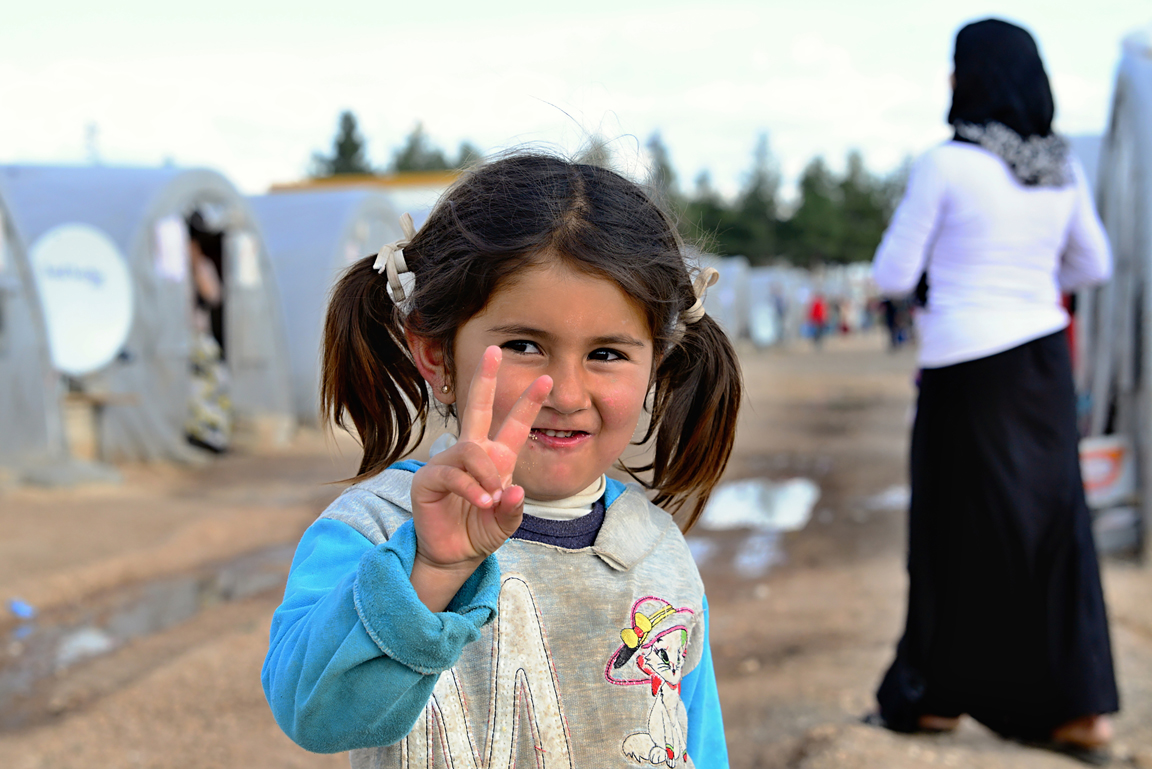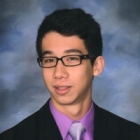An Integrated Approach to Early Childhood Development
Dr. Ghassan Issa, Co-founder and Coordinator at the Arab Resource Collective (ARC) in Beirut, Lebanon, joins host Frank Boudon, undergraduate student at Yale University. Dr. Issa discusses ARCs integrated approach to building partnerships and overcoming challenges when working on early childhood development (ECD), its importance for building peace and preventing violence in the Middle East.

An Integrated Approach to Early Childhood Development
Guest Dr. Ghassan Issa, Arab Resource Collective
22 March 2016
Frank Boudon: I’m Frank Boudon, Yale undergraduate and interviewer for the Early Childhood Peacebuilding Consortium online platform. Today we’ll be speaking with Dr. Ghassan Issa, a Lebanese doctor with a postgraduate degree in Pediatrics. He is the co-founder and general coordinator of an Arab regional NGO, the Arab Resource Collective, also known as ARC, that was established in 1988 to focus on issues related to childhood, healthcare, and community development in the Middle East.
Dr. Ghassan, can you please tell us about ARC’s goals and divisions in respect to early childhood?
Dr. Ghassan Issa: Sure. Thank you very much, Frank, and thank you to the Early Childhood Peace Consortium for giving me the chance to talk to you. ARC, as you said, is a region NGO venture. We work towards social justice, freedom, and equity where each human being has the potential to build his or herself capacities and to convert lives into a reality across the Arab world. So when we talk about better childhood, health for all, and community development, we approach these three main issues into a holistic, integrated approach. And [from] here comes our general vision for ARC.
Boudon: Great. And what have been the most significant challenges in implementing early childhood development (ECD) programs in the countries where you work and how is ARC responding to these ECD challenges regionally?
Issa: Ok, now we have two types of challenges and they are interconnected: the acute challenges and the chronic challenges. The chronic challenge is that there are challenges in the region by category, from conception to three years and then there are from four to five years and then from six to eight years to cover the whole spectrum of early childhood years. These are mainly related to division and segregation of services. The region has services that may be given to [an] age group alone, not related to protection and not related to education. These three main issues, which are related to the early childhood development. Each Ministry of Health or each Ministry of Social Affairs and Ministry of Education will take part in early childhood development and deal with it. So this division of a holistic integrated approach to early childhood is very important.
The other thing is that when you talk about early childhood from conception to three years of age, as I said, and then the four to five years. And here the challenge is how to increase enrollment in early childhood services, nurseries, and KGs to ensure the continuum of care from home to enrollment in basic education. This sort of challenge is very important after the third until the end of the fifth year. Whereas between the six and eight years of age, the Ministry of Education gives top priority to the quality of teaching at the early grades, which is not always the case. This is another challenge.
The other type of challenge is related to a systematic approach to early childhood. The challenge is related to a decrease or absence of national early childhood development strategies in Arab countries. Very few Arab countries have national ECD policies and strategies, including child-friendly budgets. This is not present in all Arab countries. And we have very segregated data about early childhood. And this is another challenge to get all the data about early childhood collected, compiled, and analyzed in a database at least for each country, not to mention all the Arab countries. Of course inter-sectorial coordination is very bad and is a challenge. Engaging the parents for instance and continuum of care for the children, the quality and standards, and to increase the capital of knowledge, which is in Arabic language is very important. Most of this new early childhood development knowledge is in foreign languages and translating it and adapting it is very important. The urgency of equity of ECD services, whether between Arab countries, there are Arab countries that have enrollment of something like 100% for these age groups, whereas other countries, and especially now such as Yemen, Syria, and Iraq, the enrollment is very low. And then you have problems of networking and advocacy and other issues. Now these are general and chronic challenges that we are facing.
Now we have the acute challenges, that is wherever you have early child development starting to take a few steps forward in development and then at one time you find yourself back to square zero and you have wars and violence and civil wars and occupations of the Palestinian territories, and violence in Syria and Iraq and Yemen namely, and now in Libya and Sudan, this will bring early childhood development down below the level [back] to square one every now and then. So we have these two challenges, one is the acute that we are facing, and the other are the chronic challenges which are in a way are common for every childhood in the Arab countries and other parts of the world.
Boudon: Could you tell us a little bit about how ARC is responding to these challenges?
Issa: Yes, ARC is not a government, it is a regional NGO and our resources are limited. But there are divisions of partnership, the holistic and integrated approach, that is you take childhood as a unit rather than divide it in sections, a child has his health, protection, and education all together in him so you can’t divide these issues in a child. So the holistic integrated approach is the nature of our programs. So what we do is, by networking and getting people together, get partners from regional NGOs to work together on issues related to childhood, and as I said, health and community development. By networking, we produce needed resources, that is we produce the knowledge needed to and culturally adapt such knowledge that is produced outside the Arab region. And we produce the knowledge inside the Arab region depending on the local experiences in the Arab countries. The other thing is building up capacities, here we address the educators and other childhood educators. And definitely what is very important for us is responsive parenting programs that we implement. And again, actual resources are very important. And we try to promote and disseminate the high standards actions in early childhood. And then last but not least, the advocacy is an element that is very important in these things. This is how we try to address these challenges. The most important issue is that we don’t address these challenges alone. The whole idea is to get partners and get people, other NGOs, governments, academics interested as stakeholders to get them together to work on this issue early childhood and development with quality.
Boudon: What in your view is the contribution of investing in early childhood development to promote peace and violence prevention in the Middle East?
Issa: Of course here we should look to this issue and an ecological model, that is investment in early childhood development is has become the basics of a more comprehensive approach to peace. Peace and stability for ARC extends beyond the elimination of violence, so eliminating root causes of political injustice, economic inequity, and social exclusion. And we think that to do so you should start by investing in the early childhood. Of course, as you may know, the financial investment…is that if you put one dollar in ECD you will get in the future.. about $12 or $17 dollars. But we think the investment is beyond that. It is investment in the child, investment in the family, investment in the community and to reach the root causes of the social injustice, which starts with early childhood care and development. This is how we look at it. I think I think the Early Childhood Peace Consortium for instance was very strategic in that and that’s why we are part of this consortium globally. Getting the two things together, that is this ecology of peace and all of its components, starting from the biology, if you want, from the brain development towards the social justice of the community. And at the same time, when you have acute violence and wars and civil wars, which we are having now in the Arab countries, you have to respond to that by the relief and protection policies and resources. You need that to or else you lose generation after generation if you don’t start your ECD development and strategies from the start. Our children in the region are facing an ordeal of the issues, especially because of the violence, which is taking place, and the occupation. And I think they can’t wait for us grown-ups to finish our problems to start developing.
Boudon: Great, thank you for your time today, Dr. Ghasan. It’s been wonderful speaking with you and we look forward to learning more about ARC’s work in the future.
Issa: Thank you very much, Frank. Thank you. And thank you to the ECPC for this opportunity. Thank you very much.
JOIN THE CONVERSATION
For breaking news and to stay connected, follow us on social media. Sign up to get our E-News delivered straight to your inbox.



